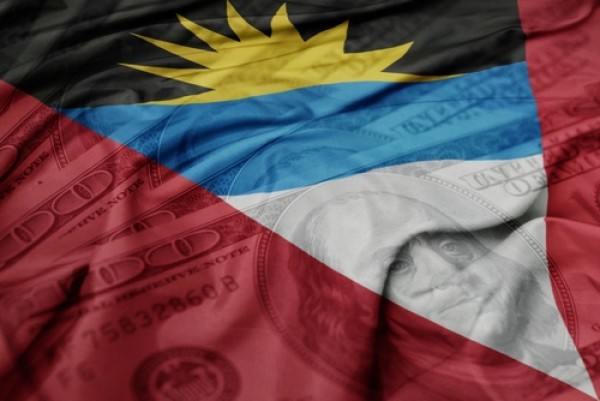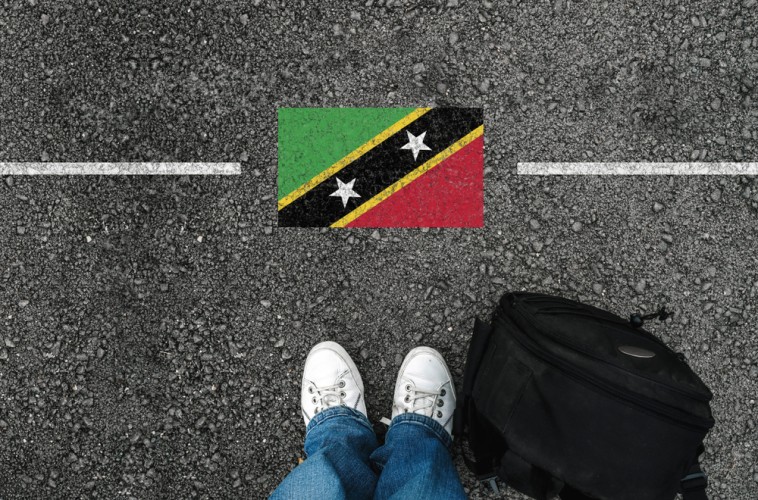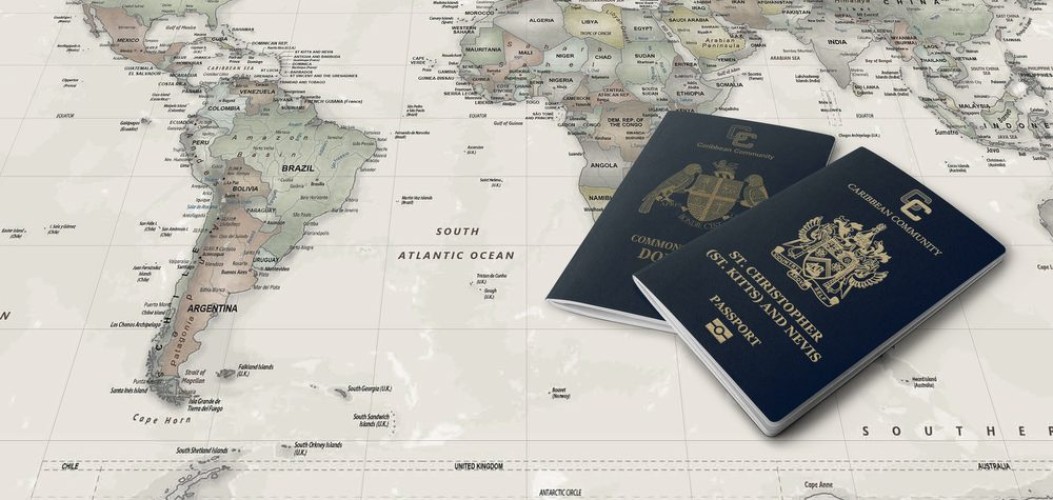The sovereign island nation of Antigua and Barbuda has entrenched itself as a leading finance hub in the Caribbean, harmoniously blending paradisiac beauty with a rigorously designed economic model. Honored for unfailing stability and strict conformity to international finance norms, the archipelago’s banks cater to a cross-section of customers—grassroots business owners to cross-border investors seeking diversified portfolios. Under the risk management provided by the Eastern Caribbean Central Bank (ECCB), the guardian of the region’s finance, the Eastern Caribbean Dollar (XCD) is irrevocably pegged to the US Dollar at an exchange ratio of 2.70:1, imparting unparalleled fiscal certainty to the Eastern Caribbean Currency Union (ECCU).
Dual-Layered Regulatory Framework
The economic governance of Antigua and Barbuda is through a two-tiered regime of regulation. Traditional bank operations and currency management for the eight ECCB member countries are regulated by the ECCB itself, while the Financial Services Regulatory Commission regulates the non-residential finance entities and specialized offshore institutions. Having two regulators for these functions strengthens compliance with international anti-money laundering requirements and counter-terrorism financing guidelines that consolidate the nation’s position as a compliant, open finance center.
Domestic and international clients have entry to flexible investment instruments like multiple-jurisdictional accounts, forex trading platforms, and customized asset preservation strategies. Off-shore bank accounts, while accessible to foreigners, require rigorous screening: applicants are required to provide audited income documentation, apostilled identification, and verifiable bank references. Citizenship by Investment participants, nonetheless, enjoy preferential processing based in part on their investor credentials to sidestep traditional delays in the process.
Digital transformation has reconfigured norms of operations, with entities such as ACB Caribbean and CIBC FirstCaribbean using AI-powered mobile applications for immediate fund transfers, biometric verification, and AI-powered finance analysis. Cross-border corporate transactions, however, are still subjected to compliance teams’ human oversight—a strategic precaution against systemic weaknesses.
Major Financial Institutions: Pillars of Prosperity
The banking industry in Antigua and Barbuda is a mosaic of local entrepreneurs and multinational groups, both serving niche segments ranging from micro-financing to institutional wealth management.
- Antigua Commercial Bank (ACB Caribbean): A retail finance pillar since 1955, ACB has a portfolio of over XCD 1.2 billion, including microloans, corporate lines of credit, and ESG-focused investment products. Its strategic merge in 2021 with RBC’s Antigua-Grenada office spurred its growth to cover sustainable infrastructure finance, enhancing its position as a catalyst of community development.
- Eastern Caribbean Amalgamated Bank (ECAB): Born in 2010, ECAB redefines the concept of accessibility through blockchain-capable transaction platforms and high-yielding savings accounts. Its 2021 acquisition of Scotiabank’s local operations opened up synergies in farm finance, positioning it at the forefront of the provision of climate-resilient project finance.
- Global Bank of Commerce Ltd (GBC): Registered under the 1982 International Business Corporations Act, GBC specializes in offshore wealth preservation, including cryptocurrency custodial solutions, cross-border escrow accounts, and SWIFT-linked liquidity solutions for high-net-worth individuals. It has a network of 30+ correspondent banks in Europe, Asia, and North America.
- Canadian Imperial Bank of Commerce subsidiary: This bank deals exclusively in expatriates’ retirement portfolios, treasury management for multinationals, and facilitating FDI. While not a member of the Caribbean Association of Banks, ECCB membership serves to maintain compliance with the requirements of Basel III.
- Antigua and Barbuda Development Bank (ABDB): ABDB has provided concessional lending of XCD140+ million since 1974, targeting gender-inclusive business, eco-tourism operations, and agritech entrepreneurship. Its “Green Futures” program finances solar-driven resorts and organic produce cooperatives.
- Caribbean Union Bank: Founded in 2005, CUB integrates robo-investment tools with customized wealth planning, targeting diaspora investment avenues and SME digitization. It offers the “TechUp” grant program for fintech startups, complementing Antigua’s move toward a digital-centric economy.
Synthesis of Tradition and Innovation
Antigua and Barbuda’s financial sector epitomizes a dual allure—a sanctuary for sun-seekers and a fortress for fiscal strategists. As regulatory frameworks tighten and global economic interdependencies deepen, the nation’s banking landscape evolves, balancing avant-garde fintech adoption with ironclad compliance. This dynamic equilibrium ensures its enduring relevance in an era of geopolitical flux, solidifying its role as a Caribbean crossroads where capital meets opportunity.
Major Domestic Banking Giants in Antigua and Barbuda
The economic tapestry of Antigua and Barbuda is embroidered by home-grown banks in tandem with the region’s finance titans, with each providing customized financial solutions to individuals, small to medium-sized enterprises, and multinational enterprises. With the watchful eyes of the Eastern Caribbean Central Bank (ECCB) overseeing them, these entities are keenly focused on monetary prudence, in line with the resolute XCD-to-USD peg of 2.70:1—a pillar of economic certainty. Here below, the archipelago’s most impactful banks are laid out:
ACB Caribbean (Antigua Commercial Bank): A long-standing pillar of the country’s financial tradition since the year of founding in 1955, ACB Caribbean has a strong asset base of over XCD 1.2 billion. Aside from the retail mainstays—consumer loans, debit/credit card offerings, and deposit accounts—the bank has become a regional presence since merging in 2021 with RBC operations in Antigua and Grenada. This growth supported the corporate lending business, facilitating finance for sustainable tourism ventures and alternative energy projects.
Eastern Caribbean Amalgamated Bank (ECAB): Founded in 2010, ECAB reimagines modern banking with AI-powered chatbots, blockchain transaction tracing, and hyper-competitive SME lending rates of just 5.9%. Its 2021 acquisition of Scotiabank’s assets in Antigua not only doubled branches but also added innovative agribusiness lending initiatives, aiding local farmers with drought-resistant subsidy programs for their crops.
Caribbean Union Bank (CUB): From 2005, CUB has established itself as the first point of contact for the expat and digital nomad population in the provision of multi-currency retirement plans, diaspora bond investments, and real-time fx hedging instruments. Based in St. John’s, it has “CUB Connect” centers located in prime expat havens, combining fintech nimbleness with bespoke wealth planning solutions.
Antigua and Barbuda Development Bank (ABDB): A catalyst for socio-economic growth since 1974, ABDB has provided more than XCD 140 million in low-interest financing, targeting industries such as eco-tourism, STEM education, and climate-resilient farming. Its “Youth Innovate” initiative provides debt-free business grants to entrepreneurs under 30, while its solar panel financing program has reduced the cost of energy for over 500 families.
Global Bank of Commerce (GBC Ltd): GBC is Antigua’s offshore banking pioneer, providing cross-border escrow services, custodial accounts for cryptocurrency, and tax-effective structures for High Net Worth clients. With SWIFT/SEPA connectivity and correspondent relationships with 40+ international banks, it settles more than $300 million of cross-border trade per annum.
They are representative of Antigua’s dual mission: combining state-of-the-art digital infrastructure (e.g., biometric verification, AI risk analysis) with community-level initiatives such as microloan expositions and personal finance seminars in village populations.
Offshore Synergies and Global Financial Influences
Though local and island banks control the finance sector in Antigua, international players have a selective role to play in defining the cross-border attraction of the sector. This is evident for the case of the Canadian-owned ECCB-regulated CIBC FirstCaribbean International Bank, which specializes in the provision of expatriate retirement schemes as well as cross-jurisdiction finance for the merging of entities.
Now, international clients tap Antigua’s offshore infrastructure through vehicles like GBC Ltd, holding $1.2 billion in offshore balances and selling “golden visa” packages based on the Citizenship by Investment (CBI) program—complete with fast-tracked account opening and first-priority access to IPO events. Particularly, Antigua is drawing niche digital banks such as EuroCaribbean Bank Ltd, which collaborates with local offshore entities to provide decentralized finance (DeFi) platforms for tokenized property, mirroring the country’s drive to become a center for blockchain innovation.
Step-by-Step Guide to Starting a Bank Account
Non-residents have to navigate carefully around Antigua’s protocol, so the following is an extended roadmap:
Institution Selection:
- Consumer-Facing Services. ACB Caribbean and ECAB excel with consumer-centric services, including instant QR-code transactions and deferral of student loans.
- Offshore Services. GBC Ltd offers customized solutions such as offshore escrow accounts (minimum deposit: $25,000) and privacy-oriented numbered account
- SME Banking. With its “Business Boost” facility, CUB provides revolving credit lines of up to XCD 500,000 with collateral flexibility.
Documentation Requirements
- Provide apostilled passport copies, six-month bank statements, a notarized address proof (e.g., utility or rent agreement), and an itemized declaration of a source of wealth for deposits over $50,000.
- Submit articles of incorporation, beneficial ownership disclosures, audited financial reports for the last two years, and a board resolution for account access.
Application Channels:
- In Person. Book appointments through bank portals; processing time is 10–14 days.
- Remote Onboarding. Sites such as ECAB’s “eStart” provide online submission, but the non-residents have to send notarized documentation accompanied with GPS-tagged certification
Deposit Thresholds:
- Savings accounts are activated at XCD 50; term deposits begin at XCD 1,000.
- Non-Residents. Minimum balances range from 400(basicchecking)to400(basicchecking)to25,000 (priority offshore portfolios).
Digital Integration:
- The banks also have apps with facial recognition login capabilities and AI budget tracking. Note: Cross-border wire transfers are manually approved (24–48 hours) to meet ECCB’s Anti-Fraud Protocols.
- CBI benefit. Citizenship-by-Investment applicants skip normal screening, with accounts opened within 72 hours upon the submission of CBI certificates.
The banking industry in Antigua and Barbuda best reflects the Caribbean’s peculiar combination of relaxed charm with institutional discipline. With the ECCB’s and FSRC’s collective oversight, the country provides infallible guarantee for deposits but fosters creativity—demonstrated through ACB’s green bonds and GBC’s Metaverse vehicles for investment. For investors, Antigua is a tax-optimized sanctuary: no capital gains taxes, only 10% corporate tax rates for offshore entities, and duty-free import liberties for the benefit of CBI recipients. While so, ABDB’s people-focused initiatives promote equitable growth, connecting the urban and the rural economies.
With Barbuda’s emerging smart city initiatives drawing FDI, the finance sector is ready to couple IoT-driven farm finance structures along with AI-powered risk evaluation tools. Finance in this two-islands nation is not just transactional but also a driver for sustainable progress, bridging global aspirations with the Caribbean essence.







